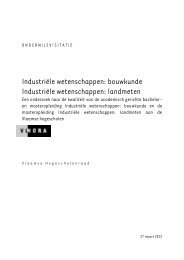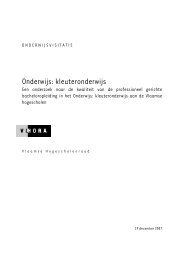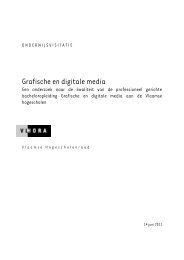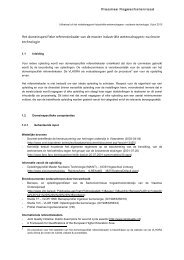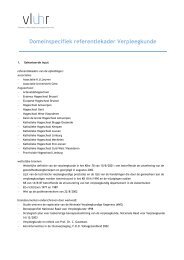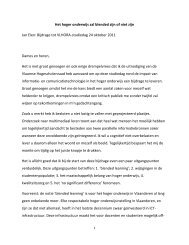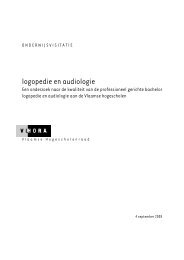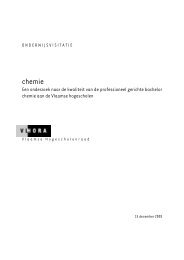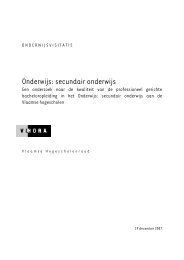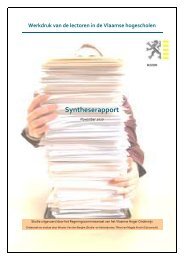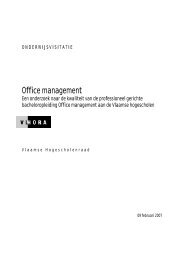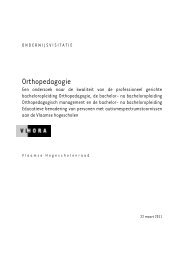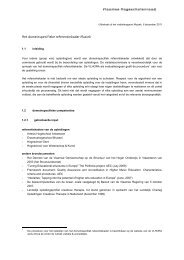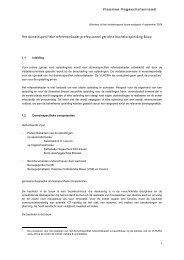Towards a Diversified, Responsive and Competitive European Higher
Towards a Diversified, Responsive and Competitive European Higher
Towards a Diversified, Responsive and Competitive European Higher
You also want an ePaper? Increase the reach of your titles
YUMPU automatically turns print PDFs into web optimized ePapers that Google loves.
• support the involvement of all stakeholders in quality assurance in order to recognise their indisputablerole in contributing to a fair <strong>and</strong> full qualitative picture;• demonstrate, develop, explain <strong>and</strong> implement the link <strong>and</strong> relation between quality assurance,qualifications frameworks <strong>and</strong> learning outcomes on a national level;• entrust the ‘E4’ group with presenting a proposal for the revision of the <strong>European</strong> St<strong>and</strong>ards <strong>and</strong>Guidelines for Quality Assurance in close consultation with Education International, BUSINESSEUROPE<strong>and</strong> the <strong>European</strong> Quality Assurance Register for <strong>Higher</strong> Education (EQAR);• promote general wider underst<strong>and</strong>ing amongst institutions regarding the linkage of external <strong>and</strong>internal quality assurance to stakeholders <strong>and</strong> also to international higher-education l<strong>and</strong>scapes.D. Mobility <strong>and</strong> International OpennessMobility has been at the heart of the Bologna Process since its inception: <strong>and</strong> the ultimate aim of creatingwhat would become the <strong>European</strong> <strong>Higher</strong> Education Area was to create more ‘transparency’ in <strong>European</strong>higher education, which would facilitate recognition, the accepted <strong>and</strong> established cornerstone of academicmobility. The added value of the input of professional higher education has been to broaden the scopeof the mobility experience by incorporating internships, professional <strong>and</strong> work experience in the exchangepractices. Engagement with the formally recognised types of mobility is greatly enhanced, when mobility is inline with institutional profiles <strong>and</strong> the learning paths of individual students. In a global world, the internationalopenness of <strong>European</strong> higher education is becoming an established reality.EURASHE therefore holds the view that:• the notion of mobility has to be diversified <strong>and</strong> become an overarching concept including bothphysical <strong>and</strong> virtual mobility: <strong>and</strong> its recognition should be irrespective of its duration;• the content of mobility should be within the remit of the ‘institutional’ or even ‘programme level’,at the choice of the individual institution, which enables institutions to emphasise the vocationalaspects of an exchange experience;• institutions should have the liberty to give mobility ‘different faces’, from the purely academic to‘mobility for jobs’, in line with the supporting profile of a programme or institution;• the student who chooses a specific qualification or programme, should have the option of a ‘relatedmobility’ which is in line with his/her learning experience.EURASHE believes that in order to achieve the policy intentions, we must:• exp<strong>and</strong> the mobility of students in all EHEA countries, in all three cycles <strong>and</strong> in its various forms;• promote the equal participation of diverse student groups in mobility;• ensure the high quality of mobility for learners;• promote the mobility of teachers, early-stage researchers <strong>and</strong> other staff in higher education;9



